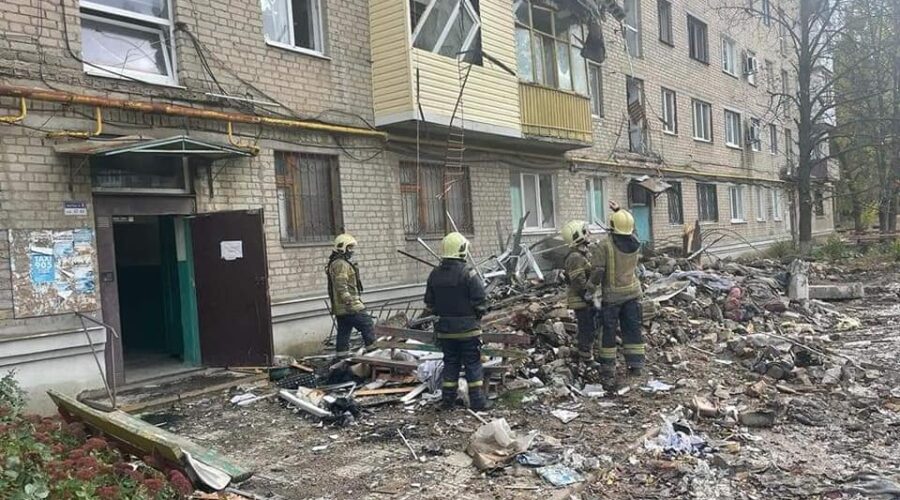As the war in Ukraine rages on, both sides seem to be preparing to launch large-scale offensives. While Russia continues building up troops in Belarus, as well as in southern Ukraine, at this point it remains highly uncertain what the Ukrainian Armed Forces’ next move could be.
Presently, the Ukrainian military is focused on defending the city of Bakhmut in the Donbass. Even though the Russian forces have been trying to capture it for almost a year, to this day Bakhmut remains in Ukrainian hands. On the other hand, the Ukrainian army could not preserve control over the town of Soledar, and is now struggling to defend its positions in neighboring villages. But neither Bakhmut nor Soledar have any strategic importance for the Russian military. Even if the Russian Wagner Group mercenaries manage to eventually establish control over Bakhmut, such a move will not change the course of war. The Ukrainian Armed Forces will retreat to other well-fortified positions, and will continue fighting.
Russia, bogged down in Ukraine, does not seem to have capacity to achieve any of its military goals in the Eastern European country. The West continues arming Ukraine with all kinds of weapons – from drones, through artillery systems, to tanks. One year after Russian President Vladimir Putin launched the so-called special military operation, the Ukrainian army seems to be more powerful than ever. The fact that it recently had to abandon relatively small territories in the Donbass does not mean that Kyiv will not start a new offensive in the foreseeable future, be that in the east of the country or elsewhere.
One year after Russian President Vladimir Putin launched the so-called special military operation, the Ukrainian army seems to be more powerful than ever.
Politically, the Kremlin reportedly aims to de facto freeze the conflict, which suggests that Moscow does have mechanisms that would allow it to end the war in its favor. After a series of debacles on the battlefield, Russia seeks to reach a deal with Kyiv almost at any cost. But the problem for the strategic planners in the Kremlin is that Ukraine, firmly backed by the West, is not willing to sign any agreements with Moscow until the Russian troops completely retreat. In other words, Kyiv remains resolute to fight until victory.
Russia, on the other hand, seems to be desperately aiming to turn things “back to normal”, or at least to pre-invasion reality, where Viktor Medvedchuk, one of Ukrainian opposition leaders, played the role of the Kremlin’s man in Kyiv. On September 21, after spending months in Ukrainian prison, he was exchanged for dozens of Azov Regiment fighters. Since Putin is a godfather to Medvedchuk’s youngest daughter Darya, it is not surprising that the Kremlin released those it previously labeled as neo-Nazis in order to get the Ukrainian oligarch. Moscow is now using Medvedchuk as a tool to demonstrate its desire to make a deal with Kyiv.
On January 16, Medvedchuk wrote an article about the war in Ukraine, in which he blamed the West for everything that happened in the Eastern European country over the past nine years, and advocated for taking Russian interests into account. In his piece, Medvedchuk used Putin’s rhetoric and mantras of “two brotherly peoples”, and accused the West of “deceiving” Russia multiple times in the past.
But in spite of that, the Kremlin, through Medvedchuk, aims to reach a deal with Western-backed Ukraine.
During the first days of the war, Moscow started spreading rumors that it allegedly wanted to put former Ukraine’s President Viktor Yanukovych back in power. Such a move was not welcomed by any political force in Ukraine, given that Yanukovych was equally despised by both pro-Russian and anti-Russian segments of the Ukrainian population. The Kremlin is now using the same strategy, even though Medvedchuk remains a highly unpopular figure in both Ukraine and Russia. Thus, it is no wonder that Moscow has zero chance of winning the hearts and minds of the Ukrainians. The Russian Federation is, for some reason, constantly betting on the wrong horse in Kyiv.
Ukraine, for its part, does not have any illusions that a ceasefire deal with Russia is possible under the current circumstances. Kyiv fears the Russian army could soon retake the initiative, which is why the Ukrainian Armed Forces continue actively strengthening their military positions near Belarus. On January 16, the Belarusian Ministry of Defense announced the beginning of the joint tactical exercises of the aviation units of the Belarusian and Russian armies included in the aviation component of the regional group of troops. The exercises are expected to be held from January 16 to February 1, which suggests that a potential Russian reinvasion of Ukraine from Belarusian territory is unlikely to take place before mid-February. Reports also suggest that Russia does not plan to launch a large-scale attack in the south before the spring. Kyiv, therefore, has enough time to prepare for what appear to be inevitable fierce battles.
Meanwhile, Moscow is expected to continue conducting massive missile strikes across Ukraine. The Russian Armed Forces will likely fire dozens of cruise missiles prior to the NATO-dominated Ramstein summit, scheduled for January 20, which will give the West more reasons to continue supplying Kyiv with weapons.
Indeed, the escalation of the Ukraine war is inevitable.
Image: Bakhmut after Russian shelling by dsns.gov.ua

